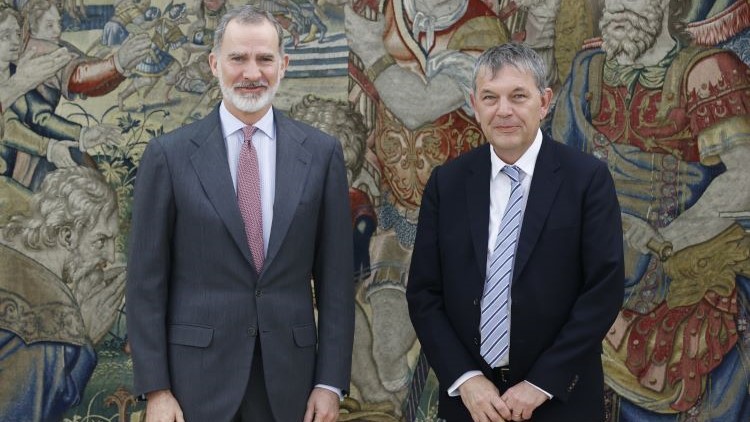Pedro González
Journalist
T
he predictions and fears were confirmed: in addition to a pro-Russian populist prime minister, Robert Fico, Slovakia will have a president of the Republic who is also inclined to abandon Ukraine in its war against Vladimir Putin’s aggression.
It was the second and final round of the presidential elections in the country of 5.4 million inhabitants, which separated from the Czech Republic (the two formed the Czechoslovak Republic) in 1993 in a process that was dubbed the “velvet revolution” because of the if not amicable, at least non-violent nature of the divorce. Peter Pellegrini, leader of the populist Hlas-SD movement, won with 53.2% of the vote to 46.8% for the pro-European diplomat Ivan Kurcok, who had surprisingly won, albeit narrowly, the first round of the presidential election.
Although national issues and disputes usually prevail in the election campaigns of the vast majority of the 27 countries of the European Union, in the case of Slovakia the predominant issue has been the war in Ukraine, a debate that has accentuated the country’s polarisation almost to the point of paroxysm.
Peter Pellegrini, like the current Prime Minister Robert Fico, advocates not only the suspension of aid to Ukraine so that President Volodimir Zelenski can confront and resist the systematic destruction work of Russian bombing and attacks of all kinds, but has also gone so far as to call into question Ukraine’s very sovereignty. The new Slovak president camouflages this with velvety language. Thus, in his first speech after proclaiming his victory, he said that he would be “the president who will defend Slovakia’s national interests, so that the country will remain on the side of peace and not on the side of war”.
Pellegrini’s victory completes a complete turnaround in Slovak politics. It is true that the head of state has limited powers, but he retains decisive powers such as the ratification of international treaties, the appointment of the judges who make up the judiciary and exercises the supreme command of the Armed Forces, as well as the power to veto laws passed by Parliament. These powers are so important that the hitherto president of the country, Zuzana Caputová, has been able to urge the Constitutional Court -and the latter has listened to her- to suspend some chapters of the intense reforms undertaken since she won the legislative elections in October 2023 by Prime Minister Fico, aimed at changing the face of the country.
With Caputová out of the presidency – he will hand over to Pellegrini on 15 June – there is every reason to believe that the reform process will be unstoppable. Ukraine can therefore say goodbye to Bratislava’s economic and military aid, and the EU as a whole will have to deal with another fractious member. Hungary’s Viktor Orban will no longer be alone, like a China in the EU’s shoe, after Poland’s Donald Franciszek Tusk has begun to bring Warsaw back on the rails of the rule of law.
Robert Fico’s authoritarian slant on Slovak politics leaves little doubt within the European institutions. In addition to a sweeping overhaul of the security forces and other institutions, he has undertaken a judicial reform that both the country’s liberal opposition and the European Commission denounce as undermining the rule of law. Now, far from having a counterweight in the head of state, Fico will have an ally in Pellegrini. And the protective shadow of the president of the Russian Federation will hang over both of them. Putin has thus set a new bone of contention within the European Union.
© Atalayar / All rights reserved






